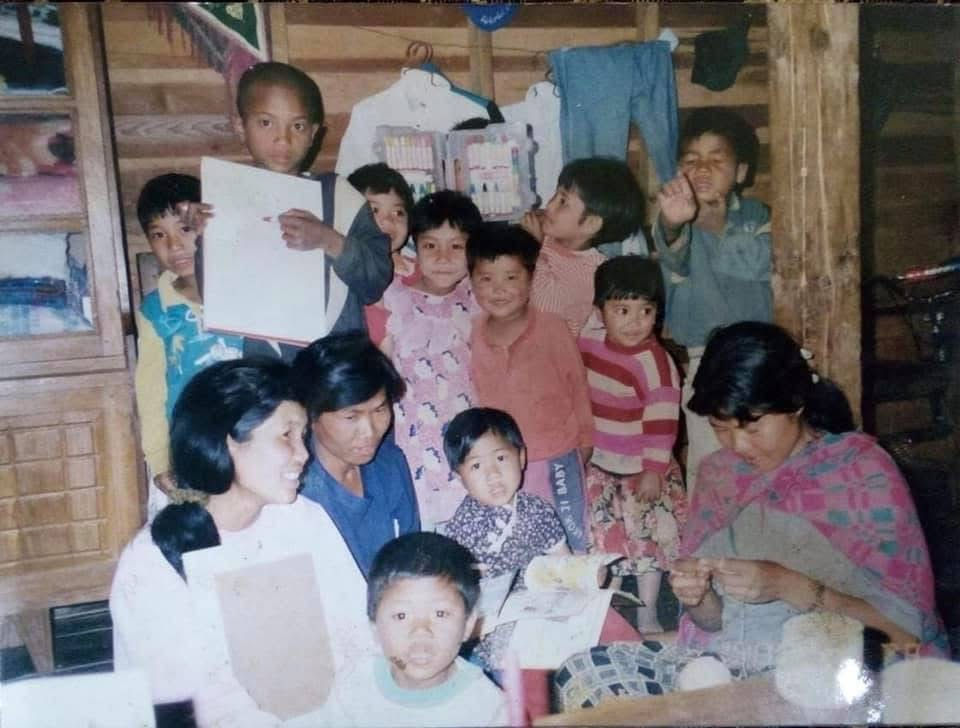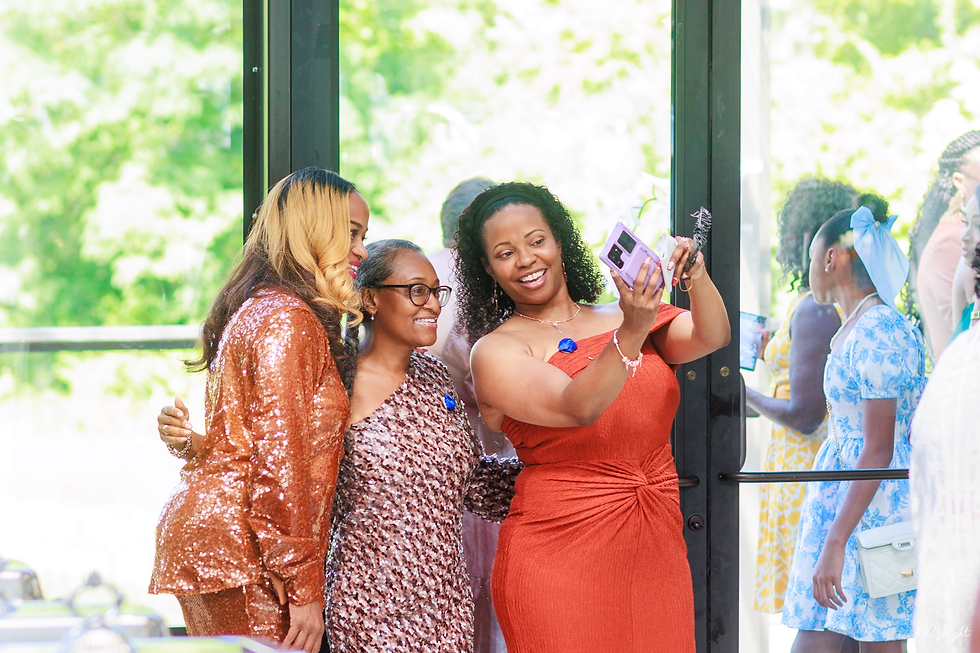Finding a Sense of Self Through Artistry
- Charlotte Stefanski

- Apr 15, 2022
- 6 min read
Updated: May 22, 2023
Creativity knows no bounds; it can be anything. Some might keep their creative side hidden, writing stories in notebooks, only for themselves. Others might express themselves outwardly through their hair, makeup or clothing.
It could be something as simple as coloring, or a physical activity like ice skating. While some might associate it with childhood, creative outlets can be a critical part of sustaining oneself into adulthood.
Finding your creative side not only provides a way of expression, but it can also help those who have experienced trauma and mental illness process those experiences and feelings. For these two women, artistry has become a large part of their identity, and now, they’re looking to help others find that sustaining creative side.

‘Hamlet,’ puppets and one woman’s personal journey
For Kate Smith, a 32-year-old performer living in Chicago, that creative escape has always been theater, where she could transform herself into anyone, in any story. “The empathy that it brought up, and the different worlds it opened up, was huge, because I was so isolated beforehand,” Smith said. “I had a voice and I think I was so voiceless before that.”
As someone who struggled with mental health and lost friends to suicide and depression, Smith sought out to write a play of her experiences in 2016. She envisioned herself surrounded by puppets alongside one of her favorite plays, Shakespeare’s “Hamlet.” While Smith plays Hamlet, the puppets take on Shakespeare’s other characters.
“One Woman Hamlet: Shake(speare) the stigma surrounding mental health” is a glimpse into Smith’s own mental health journey. The goal was to help people feel less alone. “I think if you’re experiencing mental illness—of any bracket—I want you to feel seen,” Smith said. “If you’re not, I’d like you to feel like you see the people in your life who are experiencing that a little better.”
The first versions were geared toward facts, but as Smith worked with experts, one thing became clear; they wanted more of her story. She had unintentionally silenced her own experiences with depression, but those stories were what would connect her most with audiences.
“It was really cathartic for me to be able to reclaim my story and to have power when I talk about it, as opposed to feeling like a victim,” Smith said. “That was a big deal.” In January 2021, Smith was ready to take “One Woman Hamlet” on the road, with two live shows scheduled. But then, the COVID-19 hit, and everything came to a halt. Instead of abandoning “One Woman Hamlet,” Smith connected with two filmmakers, Kseni Avonavi and Ayesha Abouelazm. The team would create a film version of the production a year later, with the hope of bringing it into Chicago’s schools.
“It’s always weird to make something into something that it wasn’t designed for. It was a lot of work; those two days (of filming) were exhausting,” Smith said. “I had no idea if I was delivering in the same way that I would deliver if I was in person.”
The film debuted in May 2021, and soon, emails and messages began flooding in from family, friends and viewers. For many, “One Woman Hamlet” had inspired them to try therapy. For family, it became a tool of reflection, both for themselves and how to help others.
While a goal of the film is to help younger generations learn about mental illness, it became clear adults needed it too. Smith has received thank-you notes from parents, saying the film helped them understand their children. Another viewer said they are the same age when Smith had her first suicide attempt and the story was needed.
“It just seems to be weirdly universal,” Smith said. “That’s why it was important to me. It feels like it’s affecting all ages right now, and we all need to hear it together in order for change to happen, for the stigma to be broken.”
While Smith might have felt voiceless as a child, her voice—her story—was now being heard by people across the country. Suddenly, she was feeling a lot less alone, and so was her audience.
For whoever does find themselves struggling, Smith has one message: “It’s OK to not be OK.”
Influencer finds sense of self through artistry
After years of heat damage to her hair, an 18-year-old Demi Mykal decided to get a deva cut, just before she went off to journalism school.
The deva cut, a technique for cutting curly hair while it’s dry, helps to both shape hair and with heat damage. “I had a lot of heat damage from straightening my hair a lot through middle school and through high school, trying to conform to something else,” Mykal said.
Like many Black women, Mykal felt the societal pressure to straighten her hair. She remembers growing up with TV shows, like “Keeping up with the Kardashians,” where no one had big, natural, curly hair.
Before she knew it, she wanted to straighten her own hair, and soon, she was applying damaging heat every two weeks. “That’s how that started. It was mainly what I saw in the media,” Mykal said. “I just didn’t really see a lot of representation.”
While Mykal said there’s still not nearly enough representation of natural hair in the media, she does feel it’s getting better. And she’s doing her part too. Now a 24-year-old living in Indianapolis, Mykal has taken on the role of beauty influencer, sharing her own natural hair journey.
Soon after her first posts on Instagram five years ago, Mykal realized there was a huge community of beauty influencers and natural hair influencers, and she felt right at home.
Through her hair and makeup, Mykal has been able to cultivate a sense of self, whether that be through different hair colors, sticking flowers into her big curls or trying different braiding techniques.
“My hair is where I show my creativity, because it’s really a part of my identity, more than anything,” Mykal said.

Helping others find that sense of self
As both Smith and Mykal have found powerful avenues to share their stories, they’ve also helped others find their sense of self and get in touch with their creative sides. In the film industry, Smith said many have a full-time job and be a full-time artist. There’s also a stigma around age and accomplishments, particularly for women, and it has often left her feeling like she hasn’t done enough.
Since “One Woman Hamlet” came out, it has been about sustainability of her personhood in an industry that doesn’t value her as a person. “Sustainability—to me, right now—means finding the thing that I really want to be doing within my art and allowing myself the time to make it, even if it takes a little longer,” Smith said. And that’s helped bring stability as she continues to create.
She’s tried to help others realize creativity can still be possible in adulthood through her “Mental Health and Creativity Collide” podcast, streaming on the Hope for Us Network’s Twitch channel.
The podcast has featured filmmakers, writers and explorers and more. It’s been her hope to get more stories out there of people that make creativity a positive thing in their lives. For those struggling to find their creative side, Smith suggests being completely alone, taking three deep breaths and asking, “What if money wasn’t an option?” “What if I didn’t care what people thought?” “What sounds fun?”
“I think all of us probably have something that we do that’s creative, that we don’t think about,” Smith said. “I think most of us have a hidden love or a hidden desire to do something in us, and we push it down for whatever reason.”
Since jumping into the world of beauty influencers in 2017, Mykal has made an impact on her followers, whether they’ve made the change to a natural hairstyle, are in-between phases or just don’t know where to start.
Many have reached out for help when it comes to products, curl types and different ways of styling hair. Some simply reach out to say she’s inspired them. She’s been able to help Black women of all ages and hair types find a style that’s beautiful and healthy for them.
That’s been important to her, as she works to create and sustain a sense of self through her art. She shares, “Sustainability, to me, means making an impact, making a change, inspiring other people to make a change, inspiring other people to stay true to themselves.”
Demi Mykal photographed by Lauren Taylor with MORE interns, Aashna Dogra and Shreya Giduturi on set assisting. Article written by Charlotte Stefanski with interviews from Demi Mykal and Kate Smith.















Comments